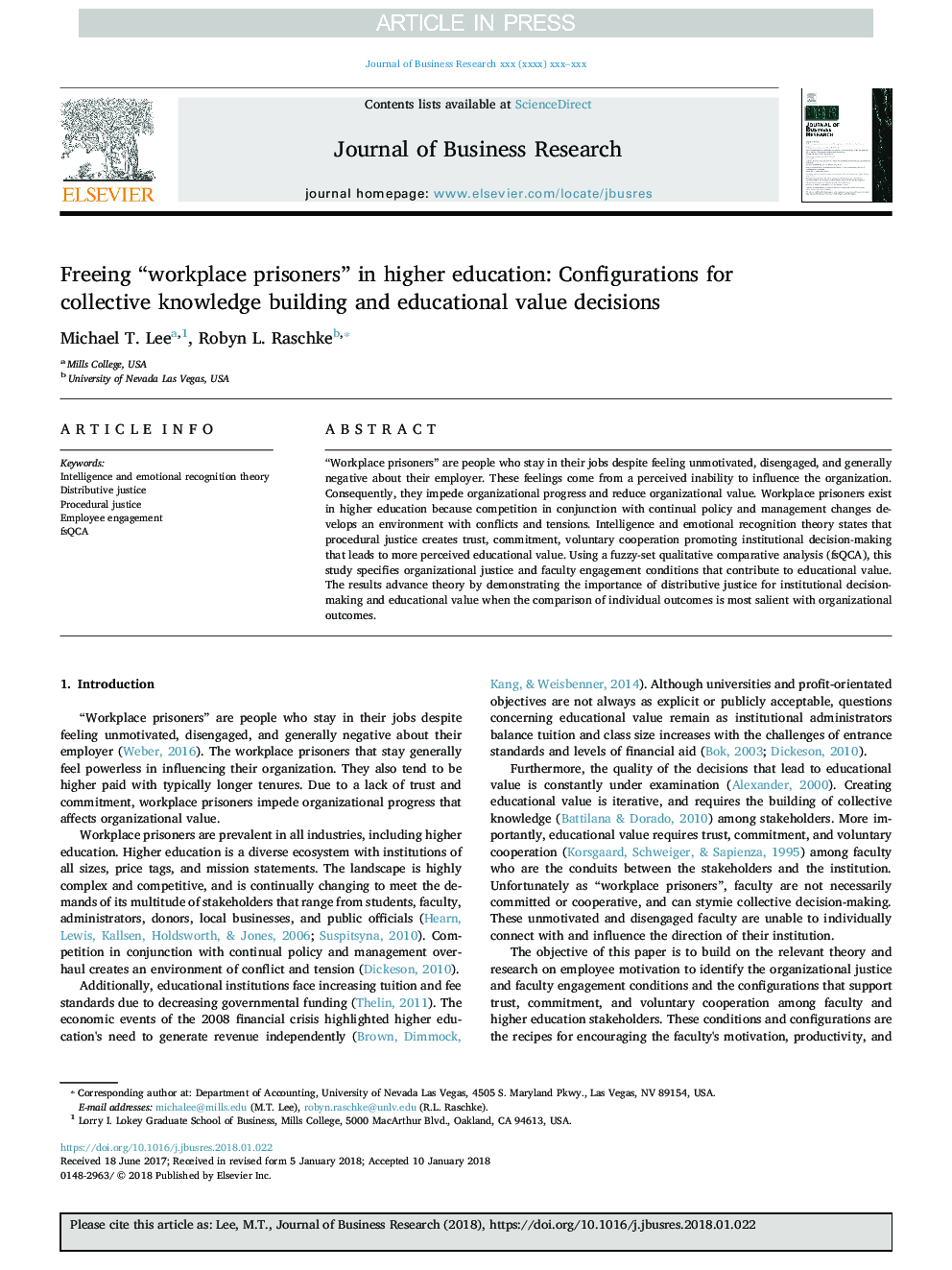| Article ID | Journal | Published Year | Pages | File Type |
|---|---|---|---|---|
| 7425042 | Journal of Business Research | 2018 | 6 Pages |
Abstract
“Workplace prisoners” are people who stay in their jobs despite feeling unmotivated, disengaged, and generally negative about their employer. These feelings come from a perceived inability to influence the organization. Consequently, they impede organizational progress and reduce organizational value. Workplace prisoners exist in higher education because competition in conjunction with continual policy and management changes develops an environment with conflicts and tensions. Intelligence and emotional recognition theory states that procedural justice creates trust, commitment, voluntary cooperation promoting institutional decision-making that leads to more perceived educational value. Using a fuzzy-set qualitative comparative analysis (fsQCA), this study specifies organizational justice and faculty engagement conditions that contribute to educational value. The results advance theory by demonstrating the importance of distributive justice for institutional decision-making and educational value when the comparison of individual outcomes is most salient with organizational outcomes.
Related Topics
Social Sciences and Humanities
Business, Management and Accounting
Business and International Management
Authors
Michael T. Lee, Robyn L. Raschke,
